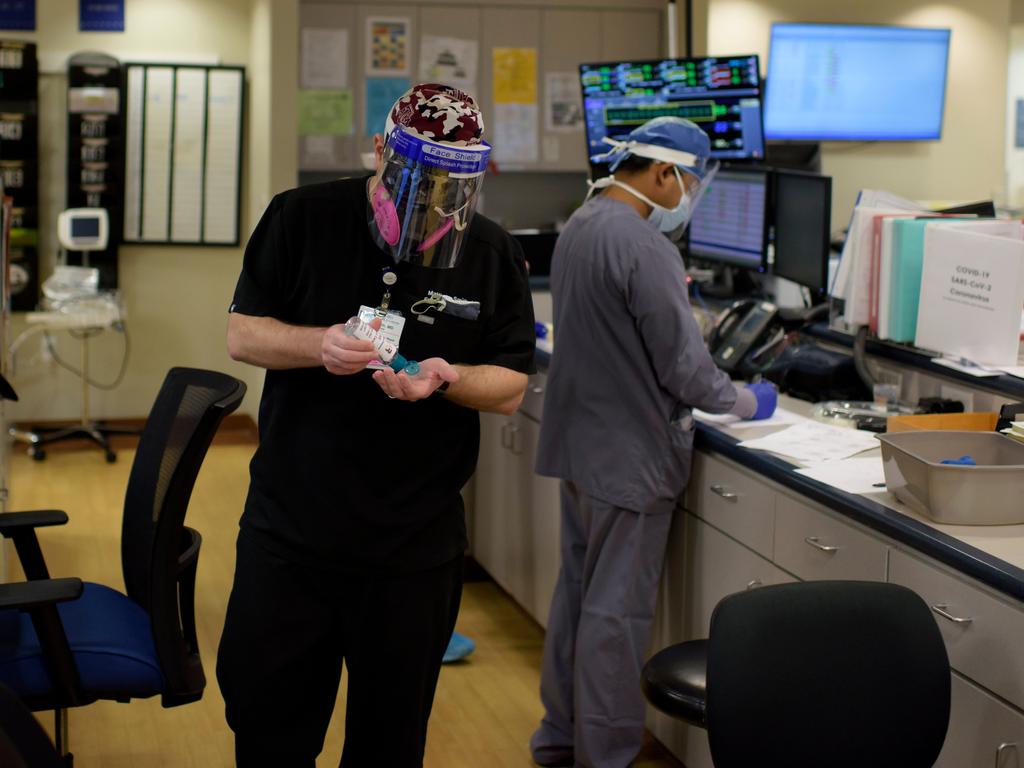Coronavirus: What it’s like to live in ‘virus free’ Tasmania

And each time I give the same answer and get the same curious response from those on the other end of the line. “I live in Tasmania,” I explain. “We are very, very lucky.” Lucky because there aren’t any face masks to be seen in the local community. Lucky because you can get a beer and a meal pretty much as normal. And lucky because everyone, even my octogenarian in-laws, are relaxed enough to do their weekly shopping in Hobart without a second thought about COVID-19 or the perils associated with it.
Tasmania is free of the virus. The last case was identified more than two months ago. And most restrictions have eased to the point where life on the Apple Isle has returned to almost normal.
With one exception. The borders remain closed. Aside from essential travellers and residents returning home to a strict 14-day quarantine, nobody gets in.
A month ago, that appeared to be coming to an end. Premier Peter Gutwein announced restrictions would ease on July 24 and interstate travel would resume. But as the number of COVID-19 cases exploded in Victoria and began to tick up across several other hotspots, the Premier abruptly reversed his decision. “As a result of what’s happening in Victoria we will not open on the 24th and for a period of time after, we will not open to them at all,” Gutwein said at a press conference this month.
The about-turn has not hurt the Premier’s popularity. Quite the reverse: 93 per cent of Tasmanians are satisfied with his performance. The same whopping proportion also think he is handing the coronavirus well with only 5 per cent of local people rating his COVID-19 response in the negative. Contrast that with Daniel Andrews where 25 per cent of Victorians are now unhappy with theirs state’s response. Gutwein is smashing it.

Tasmanians will discover later this week if border restrictions will be lifted in August. Most locals want them maintained. Recent polls show between 59 per cent and 78 per cent of Tasmanians favour continued border closure.
This has sparked a growing tension with the state’s tourism sector. Tourism Industry Council Tasmania chief Luke Martin claims 350 jobs are lost for every week the borders remain closed. “Tasmania can’t live in a bubble forever, because sooner rather than later we will run out of oxygen,” Martin recently claimed. “Businesses are closing. People are hurting. The only way to fix this jobs crisis is to open our state’s borders.”
He has a point. Tasmania’s tourism industry accounts for about 10 per cent of the gross state product and 15 per cent of total employment.
This week’s decision on Tasmania’s borders is increasingly framed by the contrast between the needs of the local population versus those of the local economy. For health and safety reasons borders should stay closed. For trade and tourism reasons they should open immediately.
But the trade argument for open borders is not quite as persuasive as it first seems. Too often in Australia we see only the short-term revenue argument as the commercially prudent approach and miss the longer, more enduring implications that smarter business minds would focus on. There is a considerable argument that keeping Tasmanian borders closed for a while longer will actually benefit tourism and interstate trade, more than opening them right now. To get that point, you must first understand the Tasmanian brand.
Consider a generic bottle of mineral water. It has no additional meanings other than hydration. What if it is Australian bottled water? Still nothing.
Now, how about Tasmanian bottled water? Suddenly it’s a different proposition. The water will seem purer. It will be perceived to be slightly different from the regular, mainland options. And it will have a bit of an artisan, smaller, quality feel to it.
That is the value of Tasmanian origin to the many products, services and experiences that the State offers. From oysters, to beer, to weekend vacations. Tasmania offers something purer, something artisanal, and something very different from the mainland.
Seen this way, it is apparent that while keeping the island closed might well weaken short-term tourism revenues, it will ultimately strengthen the longer-term perception and enduring demand for all things Tasmanian.
Keeping the state closed is consistent with its brand. Tasmania is pure and remains free of COVID-19. It is different from the mainland and the troubles that bedevil it. And when this awful period of infection ends, the position of Tasmania and its prominence and strength in the mind of Australian consumers will propel it to even greater levels of demand and price insensitivity as a result. Like a Michelin-starred restaurant or Italian luxury brand, being denied access in the short term will only drive demand in the long.
The era when Tassie was the source of sly jokes about inbreeding is long over. It is already widely perceived as an aspirational place. If Premier Gutwein is as smart an operator as I think he is, the borders will remain closed for a significantly longer period. Not despite the interests of local trade and tourism, but because of them.







How are you holding up Mark? That is the inevitable question that precedes the video calls that make up a big part of my, and probably your, working day. Whether the online meeting is with managers in Sydney or Seattle, the small-talk at the start of the call always kicks off with the same friendly inquiry.